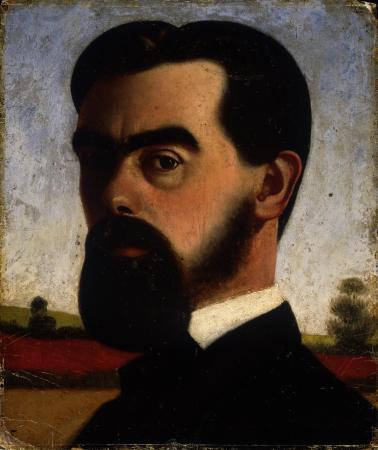Samuel Butler (pisarz) cytaty
„Złodziej pozwala wybrać: pieniądze albo życie; kobieta żąda obu naraz.”
Brigands demand your money or your life; women require both (ang.)
Samuel Butler (pisarz): Cytaty po angielsku
“All animals, except man, know that the principal business of life is to enjoy it.”
Źródło: The Way of All Flesh (1903), Ch. 19
“It must be remembered that we have only heard one side of the case. God has written all the books.”
An Apology for the Devil
The Note-Books of Samuel Butler (1912), Part XIV - Higgledy-Piggledy
Źródło: The Note Books of Samuel Butler
“Sensible people get the greater part of their own dying done during their own lifetime.”
Źródło: The Way of All Flesh (1903), Ch. 24
Źródło: The Way of All Flesh (1903), Ch. 14
Kontekst: Every man’s work, whether it be literature or music or pictures or architecture or anything else, is always a portrait of himself, and the more he tries to conceal himself the more clearly will his character appear in spite of him.
“To live is like to love — all reason is against it, and all healthy instinct for it.”
Life and Love
The Note-Books of Samuel Butler (1912), Part XIV - Higgledy-Piggledy
“Silence is not always tact and it is tact that is golden, not silence.”
Silence and Tact
The Note-Books of Samuel Butler (1912), Part XIV - Higgledy-Piggledy
“All men can do great things, if they know what great things are.”
Great Things
The Note-Books of Samuel Butler (1912), Part XI - Cash and Credit
Ego and Non-Ego
The Note-Books of Samuel Butler (1912), Part XX - First Principles
Waste-Paper Baskets
The Note-Books of Samuel Butler (1912), Part XIV - Higgledy-Piggledy
Inarticulate Touches
The Note-Books of Samuel Butler (1912), Part IX - A Painter's Views on Painting
“Feeling is an art and, like any other art, can be acquired by taking pains.”
Feeling
The Note-Books of Samuel Butler (1912), Part VI - Mind and Matter
Waste
The Note-Books of Samuel Butler (1912), Part VIII - Handel and Music
Źródło: Erewhon (1872), Ch. 27
“A hen is only an egg's way of making another egg.”
Life and Habit http://www.gutenberg.org/dirs/etext04/lfhb10h.htm, ch. 8 (1877)
“An energy is a soul — a something working in us.”
Matter and Mind, iii
The Note-Books of Samuel Butler (1912), Part VI - Mind and Matter
Cannibalism
The Note-Books of Samuel Butler (1912), Part II - Elementary Morality
Handel and Bach, i
The Note-Books of Samuel Butler (1912), Part VIII - Handel and Music
Intellectual Self-Indulgence
The Note-Books of Samuel Butler (1912), Part II - Elementary Morality
Philosophy and Equal Temperament
The Note-Books of Samuel Butler (1912), Part XX - First Principles
Ephemeral and Permanent Success
The Note-Books of Samuel Butler (1912), Part XI - Cash and Credit
